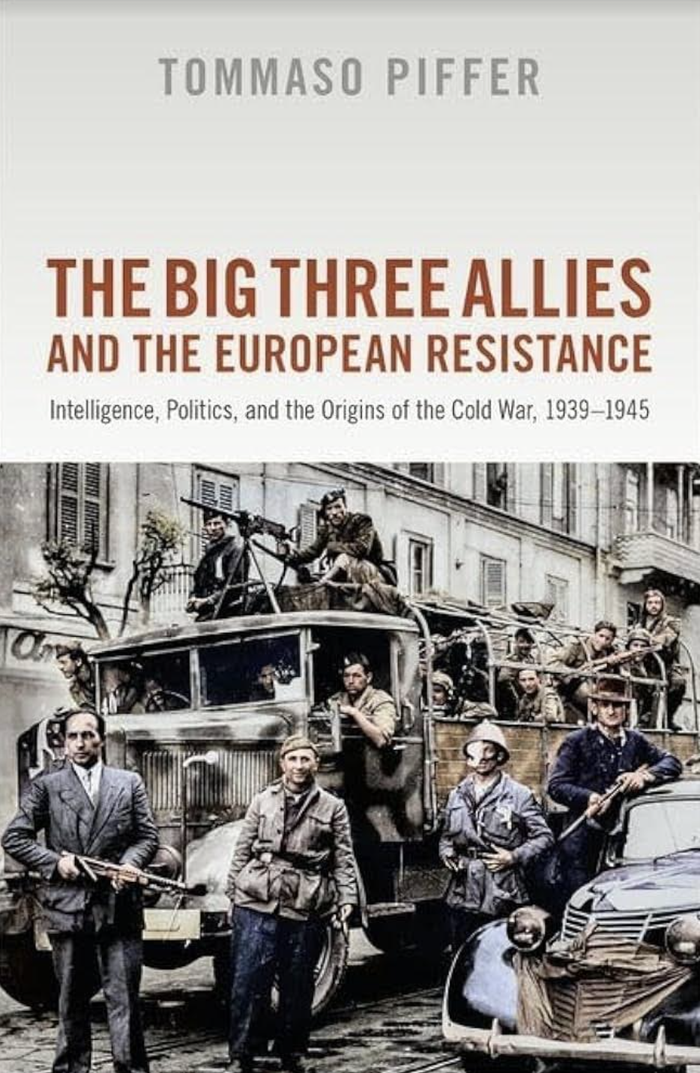The Big Three Allies and the European Resistance
Novità in libreria

The Big Three Allies and the European Resistance
- Intelligence, Politics, and the Origins of the Cold War, 1939-1945
- Autore/i: Tommaso Piffer
- Editore: Oxford University Press
- Luogo: Oxford
- Anno di pubblicazione: 2024
- ISBN: 9780198826347
The Big Three Allies and the European Resistance
- Intelligence, Politics, and the Origins of the Cold War, 1939-1945
- Autore/i: Tommaso Piffer
- Editore: Oxford University Press
- Luogo: Oxford
- Anno di pubblicazione: 2024
- ISBN: 9780198826347

While the Big Three and their continental Allies fought against Nazi Germany for the mastery of Europe, another war was under way on the continent: the war to shape the political landscape of post-war Europe. It often found the British, the Americans, the Soviets, and the partisan movements on opposite sides of the barricades. In the Balkans, the anti-Nazi war overlapped with political and ethnic conflicts, engulfing the region in bloody civil wars. In Central and Eastern Europe, partisan movements engaged the Germans without losing sight of the danger posed by the arrival of the Red Army. In France and in Italy, the adoption of the slogans of national liberation provided the communist parties with a formidable democratic legitimacy, which established them as key players in the political lives of their countries. The British and the Americans did not stand by and watch idly. To stir up, support, control, and direct the resistance groups, London created the Special Operations Executive (SOE) and Washington the Office of Strategic Services (OSS). Agents were sent into occupied Europe to liaise directly with the guerrilla groups: many of them never came back. Through the Comintern, Moscow carefully coordinated the actions of the European communist parties with the foreign policy of the Soviet Union, which was acting for the first time as a key player in the arena of international relations. The forests and the mountains where the partisans were fighting the Germans soon became a major part of the proxy war that the three Allies waged to shift the geopolitical balance in their favour. Looking for the first time at the three Allies together and spanning Europe from Yugoslavia to Poland, from Greece to France and Italy, this book vividly depicts and sharply analyses how this proxy war shaped the history of the post-war settlement.
TOMMASO PIFFER è professore associato di Storia contemporanea presso l’Università degli Studi di Udine e direttore scientifico di Friuli Storia. Prima di prendere servizio a Udine è stato Marie Curie postdoctoral fellow presso le Università di Harvard e Cambridge, postdoctoral fellow della Higher School of Economics a Mosca e Bodossakis Junior Research Fellow del Churchill College di Cambridge.




